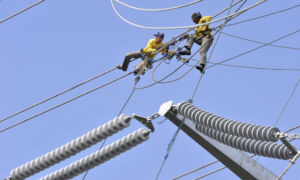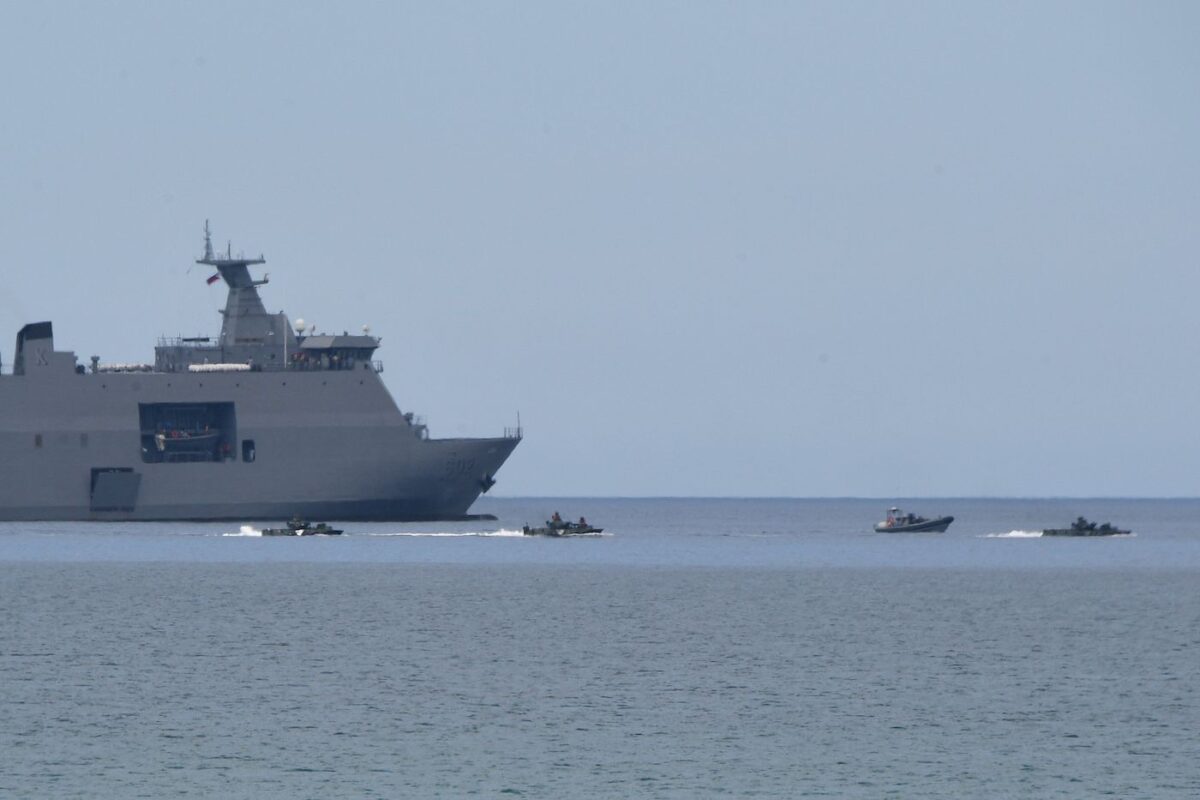Philippines Mulls Retaking Control of China-Held Grid Operator Amid Security Concerns
The Philippines said on May 16 that it would retake control of the country’s sole power grid operator, which is partly Chinese-owned, if security concerns over China’s stake in the company make it necessary. Philippines Sen. Raffy Tulfo, chair of the Senate Committee on Energy, discussed with President Ferdinand Marcos Jr. recent power outages in the country and the situation at the National Grid Corp. of the Philippines (NGCP). Tulfo cited an intelligence report that indicated the potential capability of China to “remotely access the country’s national grid and sabotage it.” “In short, Chinese shareholders can do what they want when it comes to NGCP operations. This is why our country’s energy situation is unstable,” he said, according to local outlet GMA News Online. Tulfo claimed that the local technicians couldn’t run the sensitive equipment inside the NGCP plants because the grid operating manuals are in Chinese. The senator told Marcos his intention to assess the performance and security aspect of the company, particularly “who truly controls the corporation.” “[The] Chinese ownership of NGCP poses a serious national security threat considering the current conflict between China and the Philippines over the West Philippines Sea,” he said, referring to the disputed South China Sea, which the Chinese regime claims almost entirely. The Presidential Communications Office said that Marcos has agreed with Tulf0’s proposal “to conduct a comprehensive study or hold hearings to determine the actual situation” at the power grid operator. “If necessary, the government will take back control of the entity,” the office said in a statement posted on Facebook. Ronald Dylan Concepcion, NGCP assistant corporate secretary, has denied Tulfo’s allegations and reiterated that “only Filipinos are manning the substation,” Philstar reported. The State Grid Corp. of China holds a 40 percent stake in NGCP, while the remaining 60 percent is owned by a Filipino consortium. Philippine senators have previously warned about the implications of Chinese ownership of the nation’s sole power grid. Sen. Risa Hontiveros filed a motion in November 2019, saying that Beijing could sabotage the Philippines’ elections, shut down access to the internet, and undermine national security “with the flick of a switch.” “Imagine a foreign country, which is an unrepentant trespasser and aggressor in our seas and territories, controlling our national electricity grid,” Hontiveros said at the time. Dispute Over South China Sea Beijing’s claim of sovereignty over almost the entire South China Sea was invalidated by an international arbitration ruling in 2016, but the Chinese Communist Party (CCP) didn’t change its behavior after the ruling. The CCP has been behaving more aggressively in the South China Sea in recent months, as evidenced by the presence of more than 100 Chinese militia maritime vessels within the Philippines’ exclusive economic zone from April 18 to April 24. Philippine Marines amphibious assault vehicles maneuver next to a Philippine BRP Tarlac navy landing platform dock ship during a joint amphibious landing exercise with U.S. Marines at a beach facing the South China Sea in San Antonio town, Zambales Province, on Oct. 7, 2022. (Ted Aljibe/AFP via Getty Images) The Philippine coast guard said that one of the Chinese ships “carried out dangerous maneuvers” at a distance of 50 yards from its patrol ship, posing “a significant threat” to the safety of its crew. The United States has urged China to stop harassing Philippine vessels in the South China Sea and warned that any armed attack on Philippine armed forces, public vessels, or aircraft would invoke its mutual defense treaty. Marcos has sought to strengthen his nation’s security alliance with the United States. Most recently, on May 1, the two countries reaffirmed the need for peace across the Taiwan Strait amid the CCP’s intimidating actions against the self-ruled island. The United States also secured four new military bases in the Philippines under the Enhanced Defense Cooperation Agreement, all of which are located near Taiwan.

The Philippines said on May 16 that it would retake control of the country’s sole power grid operator, which is partly Chinese-owned, if security concerns over China’s stake in the company make it necessary.
Philippines Sen. Raffy Tulfo, chair of the Senate Committee on Energy, discussed with President Ferdinand Marcos Jr. recent power outages in the country and the situation at the National Grid Corp. of the Philippines (NGCP).
Tulfo cited an intelligence report that indicated the potential capability of China to “remotely access the country’s national grid and sabotage it.”
“In short, Chinese shareholders can do what they want when it comes to NGCP operations. This is why our country’s energy situation is unstable,” he said, according to local outlet GMA News Online.
Tulfo claimed that the local technicians couldn’t run the sensitive equipment inside the NGCP plants because the grid operating manuals are in Chinese.
The senator told Marcos his intention to assess the performance and security aspect of the company, particularly “who truly controls the corporation.”
“[The] Chinese ownership of NGCP poses a serious national security threat considering the current conflict between China and the Philippines over the West Philippines Sea,” he said, referring to the disputed South China Sea, which the Chinese regime claims almost entirely.
The Presidential Communications Office said that Marcos has agreed with Tulf0’s proposal “to conduct a comprehensive study or hold hearings to determine the actual situation” at the power grid operator.
“If necessary, the government will take back control of the entity,” the office said in a statement posted on Facebook.
Ronald Dylan Concepcion, NGCP assistant corporate secretary, has denied Tulfo’s allegations and reiterated that “only Filipinos are manning the substation,” Philstar reported.
The State Grid Corp. of China holds a 40 percent stake in NGCP, while the remaining 60 percent is owned by a Filipino consortium. Philippine senators have previously warned about the implications of Chinese ownership of the nation’s sole power grid.
Sen. Risa Hontiveros filed a motion in November 2019, saying that Beijing could sabotage the Philippines’ elections, shut down access to the internet, and undermine national security “with the flick of a switch.”
“Imagine a foreign country, which is an unrepentant trespasser and aggressor in our seas and territories, controlling our national electricity grid,” Hontiveros said at the time.
Dispute Over South China Sea
Beijing’s claim of sovereignty over almost the entire South China Sea was invalidated by an international arbitration ruling in 2016, but the Chinese Communist Party (CCP) didn’t change its behavior after the ruling.
The CCP has been behaving more aggressively in the South China Sea in recent months, as evidenced by the presence of more than 100 Chinese militia maritime vessels within the Philippines’ exclusive economic zone from April 18 to April 24.

The Philippine coast guard said that one of the Chinese ships “carried out dangerous maneuvers” at a distance of 50 yards from its patrol ship, posing “a significant threat” to the safety of its crew.
The United States has urged China to stop harassing Philippine vessels in the South China Sea and warned that any armed attack on Philippine armed forces, public vessels, or aircraft would invoke its mutual defense treaty.
Marcos has sought to strengthen his nation’s security alliance with the United States. Most recently, on May 1, the two countries reaffirmed the need for peace across the Taiwan Strait amid the CCP’s intimidating actions against the self-ruled island.
The United States also secured four new military bases in the Philippines under the Enhanced Defense Cooperation Agreement, all of which are located near Taiwan.












